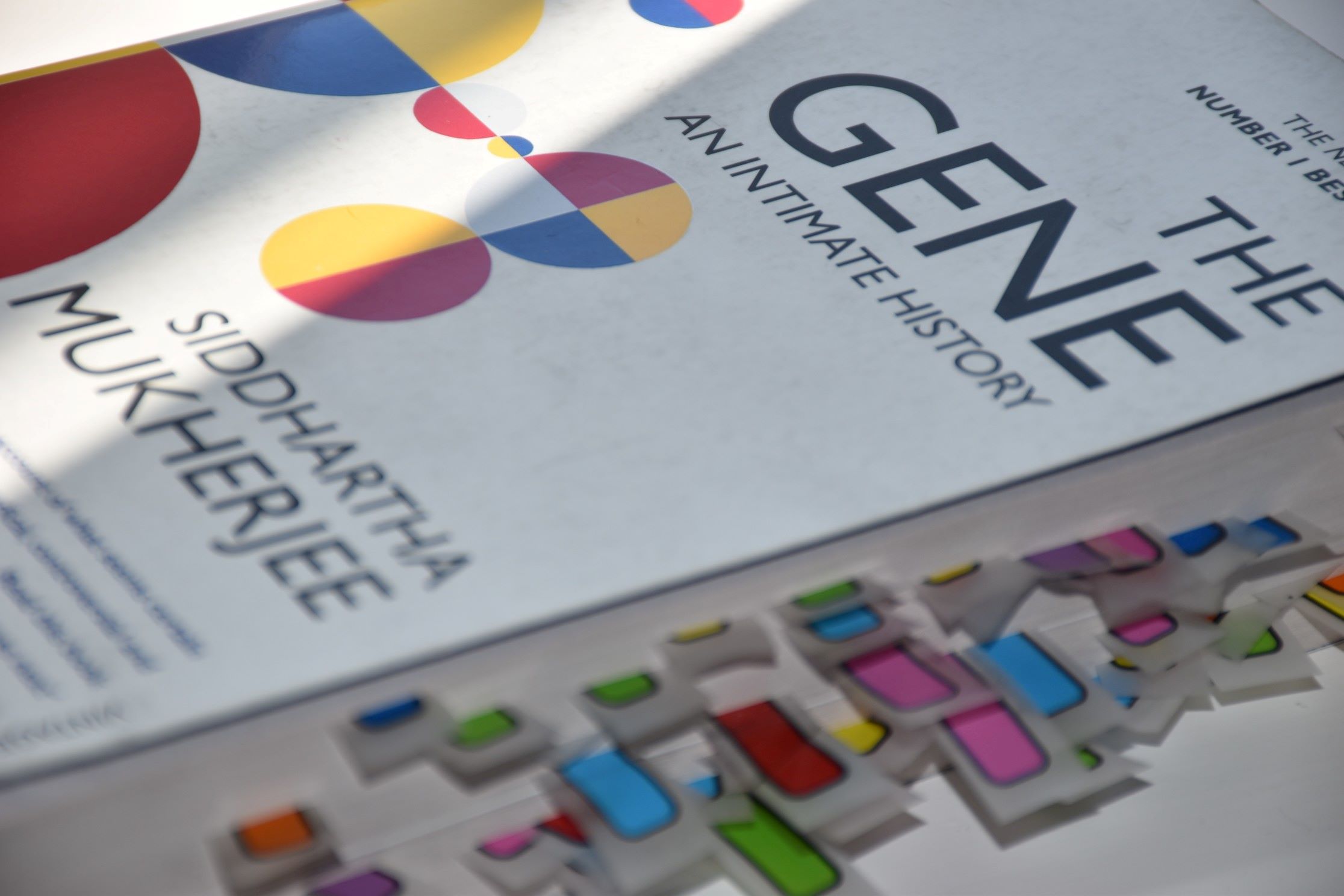
In his compelling book, “The Gene: An Intimate History,” Siddhartha Mukherjee delves deep into the captivating world of genetics, unraveling the mysteries that lie within our DNA. As a renowned scientist and physician, Mukherjee takes readers on a fascinating journey exploring the history, science, and implications of the gene. From the groundbreaking discoveries by Mendel and Watson and Crick to the ethical debates surrounding genetic engineering, Mukherjee delves into the intricate complexities that shape our genetic makeup. This thought-provoking book examines the profound impact genes have had on human evolution, disease, and even our understanding of our own identity. In this article, we will explore 10 intriguing facts about “The Gene: An Intimate History,” shedding light on its significance in shaping our understanding of genetics and its vast implications for the future.
Key Takeaways:
- Unraveling the Mysteries of Genes
Siddhartha Mukherjee’s Pulitzer Prize-winning book, “The Gene: An Intimate History,” takes readers on a captivating journey through the discovery of DNA’s structure, ethical implications of genetic engineering, and the interconnectedness of genes and the human experience. - The Impact of Genes on Our Lives
Through personal stories and thought-provoking questions, Siddhartha Mukherjee explores how genes influence hereditary diseases, genetic destiny, and the future of genetic research. This book sheds light on the profound influence of genes on human history and evolution.
The Gene: An Intimate History is a Pulitzer Prize-winning book.
Written by Siddhartha Mukherjee, this captivating exploration into the world of genetics won the 2017 Pulitzer Prize for General Nonfiction. It delves into the history, science, and societal impact of genes, providing readers with a thought-provoking and informative journey.
The book discusses the discovery of the double helix structure of DNA.
Siddhartha Mukherjee provides a fascinating account of the groundbreaking work by James Watson, Francis Crick, and Rosalind Franklin that uncovered the structure of DNA. This pivotal discovery revolutionized our understanding of genetics and laid the foundation for modern molecular biology.
It explores the ethical implications of genetic engineering.
The Gene: An Intimate History delves into the ethical dilemmas surrounding genetic engineering, including topics such as gene editing, designer babies, and the potential for genetic discrimination. Siddhartha Mukherjee raises thought-provoking questions about the moral challenges posed by advancements in genetic technology.
The book traces the history of eugenics.
Siddhartha Mukherjee takes a closer look at the dark history of eugenics, a belief system that aimed to improve the human race through selective breeding. He examines the impact of eugenics on society and explores how it shaped policies and influenced scientific research in the past.
It highlights the role of genes in hereditary diseases.
Siddhartha Mukherjee explores the connection between genes and hereditary diseases, shedding light on the mechanisms through which genetic mutations can lead to the development of conditions such as cancer, Alzheimer’s disease, and Huntington’s disease. This exploration deepens our understanding of the complex relationship between genetics and health.
The book features stories of individuals affected by genetic disorders.
Throughout The Gene: An Intimate History, Siddhartha Mukherjee shares touching and personal stories of individuals and families affected by genetic disorders. These narratives humanize the science and highlight the real-life impact that genes can have on individuals and communities.
It explores the concept of genetic destiny.
Siddhartha Mukherjee delves into the concept of genetic destiny, examining how our genes can shape and influence our lives. He explores the interplay between nature and nurture, challenging deterministic views of genetics and emphasizing the importance of environmental factors.
The Gene: An Intimate History delves into the complexities of gene regulation.
Siddhartha Mukherjee explores the intricate mechanisms by which genes are regulated. He discusses the role of epigenetics, transcription factors, and chromatin structure in controlling gene expression and how disruptions in these processes can lead to various diseases and conditions.
The book discusses the future of genetic research and its implications.
Siddhartha Mukherjee takes readers on a journey into the future of genetics, exploring the possibilities of personalized medicine, gene therapies, and advancements in genetic technology. He raises important questions about the ethical, social, and medical consequences of these advancements.
It emphasizes the interconnectedness of genes and the human experience.
The Gene: An Intimate History highlights how genes have shaped human history, culture, and evolution. Siddhartha Mukherjee weaves together science, history, and personal anecdotes to emphasize the profound influence of genes on the human experience and the interconnectedness of all living beings.
Conclusion
Siddhartha Mukherjee’s “The Gene: An Intimate History” is a remarkable dive into the world of genetics and its impact on humanity. Through his captivating storytelling and meticulous research, Mukherjee explores the complex scientific discoveries, ethical dilemmas, and personal narratives that surround the study of genes. From the fascinating history of the gene to the potential advancements in gene therapy, this book offers a thought-provoking exploration of a subject that influences every aspect of our lives.
By intertwining scientific knowledge with personal anecdotes, Mukherjee creates a narrative that is both enlightening and relatable. He sheds light on the profound implications of genetics in shaping not just our physical attributes but also our behaviors, traits, and susceptibility to diseases. This book challenges us to contemplate the intricate web of genes and their influence on our existence, leaving us with a deeper understanding of ourselves and the world we inhabit.
With “The Gene: An Intimate History,” Siddhartha Mukherjee has once again proven himself as a masterful storyteller, making complex scientific concepts accessible and engaging to a wide range of readers. This book is a must-read for anyone interested in the captivating world of genetics and its profound influence on our past, present, and future.
FAQs
1. What is “The Gene: An Intimate History” about?
The Gene: An Intimate History” is a book by Siddhartha Mukherjee that explores the history, science, and impact of genetics on humanity. It delves into topics such as gene discoveries, genetic diseases, and the ethical implications of genetic research.
2. Who is Siddhartha Mukherjee?
Siddhartha Mukherjee is an Indian-American physician, scientist, and writer. He is best known for his book “The Emperor of All Maladies: A Biography of Cancer,” which won the Pulitzer Prize for General Nonfiction. “The Gene: An Intimate History” is his second widely acclaimed book.
3. Is “The Gene: An Intimate History” suitable for non-scientific readers?
Yes, Siddhartha Mukherjee’s writing style makes complex scientific concepts accessible to readers with varying levels of scientific knowledge. He incorporates personal stories and anecdotes to engage readers, making the book enjoyable for both scientific and non-scientific audiences.
4. What are some key themes explored in the book?
The book delves into the history of genetics, the impact of genes on our physical and behavioral traits, genetic diseases, the ethical dilemmas surrounding genetic research, and the future of gene therapy.
5. Why is “The Gene: An Intimate History” significant?
This book sheds light on the crucial role that genes play in shaping human life, offering a comprehensive understanding of genetics and its implications. It encourages readers to contemplate the complex interplay between genetic factors and our individual identities.
Siddhartha Mukherjee's "The Gene: An Intimate History" is a captivating exploration of genetics, but there's even more to discover. Dive into the fascinating world of human genetics, where you'll uncover mind-blowing facts that shed light on our biological blueprint. For those intrigued by cutting-edge genetic research, the revolutionary CRISPR-Cas9 technology offers a wealth of astounding insights. And if you're curious about the brilliant mind behind "The Gene," don't miss the opportunity to learn more about the remarkable Siddhartha Mukherjee himself.
Was this page helpful?
Our commitment to delivering trustworthy and engaging content is at the heart of what we do. Each fact on our site is contributed by real users like you, bringing a wealth of diverse insights and information. To ensure the highest standards of accuracy and reliability, our dedicated editors meticulously review each submission. This process guarantees that the facts we share are not only fascinating but also credible. Trust in our commitment to quality and authenticity as you explore and learn with us.


